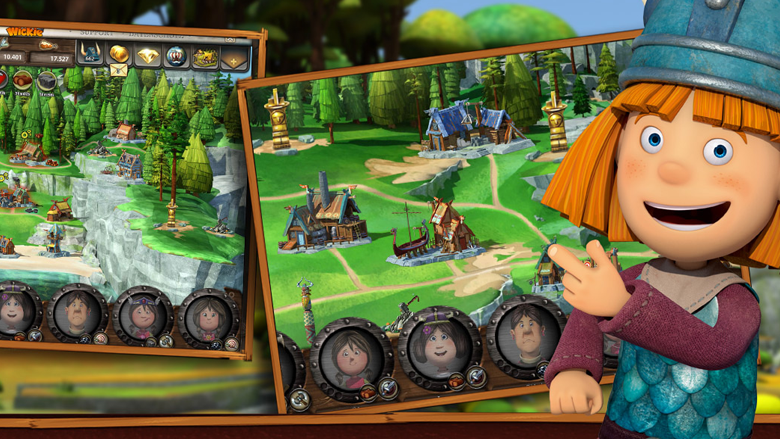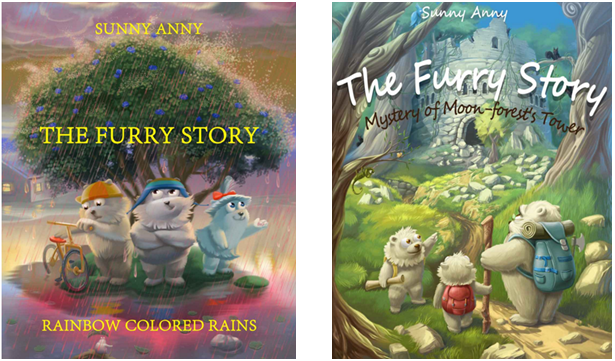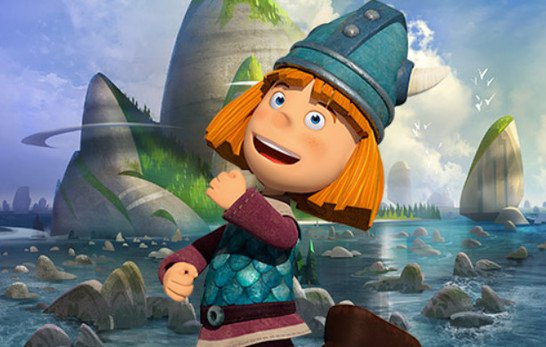The localization of apps for children – as seen by All Correct, an international translation agency.

Image Credit: Wickie Online
Over the six years that our games division has existed we have translated several dozen products for children. These weren’t just computer games, we also translated cartoons, books, fairy tales and tabletop games. We would like to share our experience using some of our projects as an example of what should be avoided when localizing children’s applications as well as the principles which should be followed.
When we received an order for a translation of this kind for the first time, which was a cartoon for children aged 2–3 years old, we decided to contact a child psychologist to find out more about the specific features of children’s perception. We also added to our list of principles while working on other projects.
Applications for pre-school children should not have certain elements:
- Compound and complex sentences, participial phrases and participles. The grammar of this kind is too complex for small children to understand.
- Fixed phrases and combinations of words with a metaphorical meaning, because children often perceive them literally. For instance, it is better to say ‘got into trouble’ than ‘got into a bind’ or ‘I’m really bored’ instead of ‘I’m bored to death’.
- Mention of sex and alcohol. No comment is needed here.
- Words from other languages.
- Slang.
- Words with negative connotations.
- Complex language. An example of this is when we used the phrase ‘My tummy hurts’ instead of saying ‘I have diarrhea’.
This is what should be used instead of the examples above:
- simple sentences
- simple language
- an informal mode of address
- the words with diminutive suffixes
You have probably already understood the general principle of translating products for children — everything must be as logical and understandable as possible and there should be no phrases with a dual meaning.
Strict line length limits
It is necessary to make the translation fit a particular number of characters.
Usually, the length of each line had to be no greater than the length of the original line. For instance, in English the Leaderboard title had a limit of 12 characters. It could have been translated to Russian as the usual ‘Список лидеров’ (14 characters), but we used ‘Лидеры’ (6 symbols) this time.
Translation of names
Localization of children’s applications does not usually cause any problems as they do not have much text and the skills that the child learns while playing are relatively simple. However, we did encounter some difficulties when translating the names in the game Smurfs Epic Run for Ubisoft, one of our most major clients.
Here, everything depends on whether the characters are new or not. If they are, then we either use transliteration or transcription or a literary translation if they are meaningful. If these characters have already appeared somewhere (in cartoons, in our case), we look for information on the Internet to find out the existing translation to keep consistent.

When we translated smurf names we used encyclopedias of their world made by their fans. However, we sometimes came across names that did not yet have any translations in public sources. In these cases, we followed the general rule for the translation of Smurf names: the word ‘smurf’ is not used and the name describes the main feature of the character. In cases where it was appropriate, we also used diminutive suffixes.
Translation of fairy tales
As we already mentioned above, we translate fairy tales as well as applications. Another project for pre-school and young school children that were involved in was providing voice-overs for books written by Anna Solnechnaya (Sunny Anny): ‘The Furry Story. Rainbow Colored Rains’ and ‘The Furry Story. Mystery of Moon-forest’s Tower’.

The language used in a fairy tale should not be too literary and difficult to understand. We tried to make the text so that it would be easy for a child to understand and so that it would sound good. This is especially important for a piece of literature that parents will read to their child to send them to sleep.
We used Participle I and II as little as possible in the translation and tried to avoid overloading the text with tense agreements. We also tried to use simple words. For example, the Russian word ‘спячка’ is usually translated as ‘hibernation’. But it is more suitable for a documentary or science fiction film. We used the word ‘sleep’ instead. Special attention was paid to conveying plays on words and fixed phrases. This was due to the genre of the work and the age of the audience.
When we translated the things said by дядя Улей (Uncle Buzz), who is one of the main characters in the book and who looks like a bee, we added buzzing sounds to his speech to make him sound like one too. Our client supported this choice.
Everyone keeps complaining that my dezzzzerts are always the same.
‘Дядя Улей‘ was also sometimes abbreviated to ‘Дядя У’. When this is translated into English, Uncle B sounds like Uncle Bee. We decided that this was very appropriate, as the target audience could already understand plays on words.
Prince Charming’s Pulsating Love Sword
English to Russian and vice versa is not the only language pair that our company works in. One of these projects was the German language online browser game Wickie Online, which was based on a popular cartoon.

Concept art from Wickie Online
Imagine what we felt when we came across two swords in the game: Prinz Charmings pulsierendes Liebesschwert and Prinz Charmings geöltes Liebesschwert. Their literal translation is the ‘Prince Charming’s Pulsating Love Sword’ and the ‘Prince Charming’s Oiled Sword’ (this could also be translated as ‘Lubricated’ sword, which is no better). After a short brainstorm, we came to the conclusion that if there are two of them, then one sword must be the main one and the other one must be a spare one (if the prince had not got the ‘dual wielding’ ability). This is the way that the less original, but far safer sounding versions of ‘Prince Charming’s Favorite Sword’ and Prince Charming’s Spare Sword were born.
These were a few interesting moments from the life of children’s app localizers. There are actually far more of these peculiarities, and a lot more projects that we work on, but that is a story for another time.
